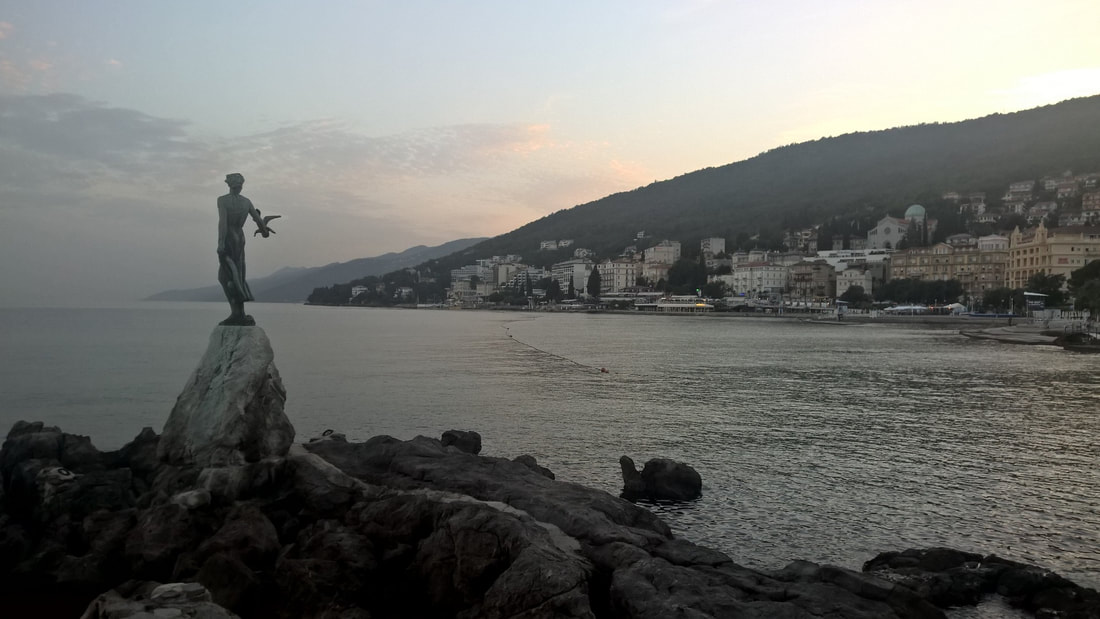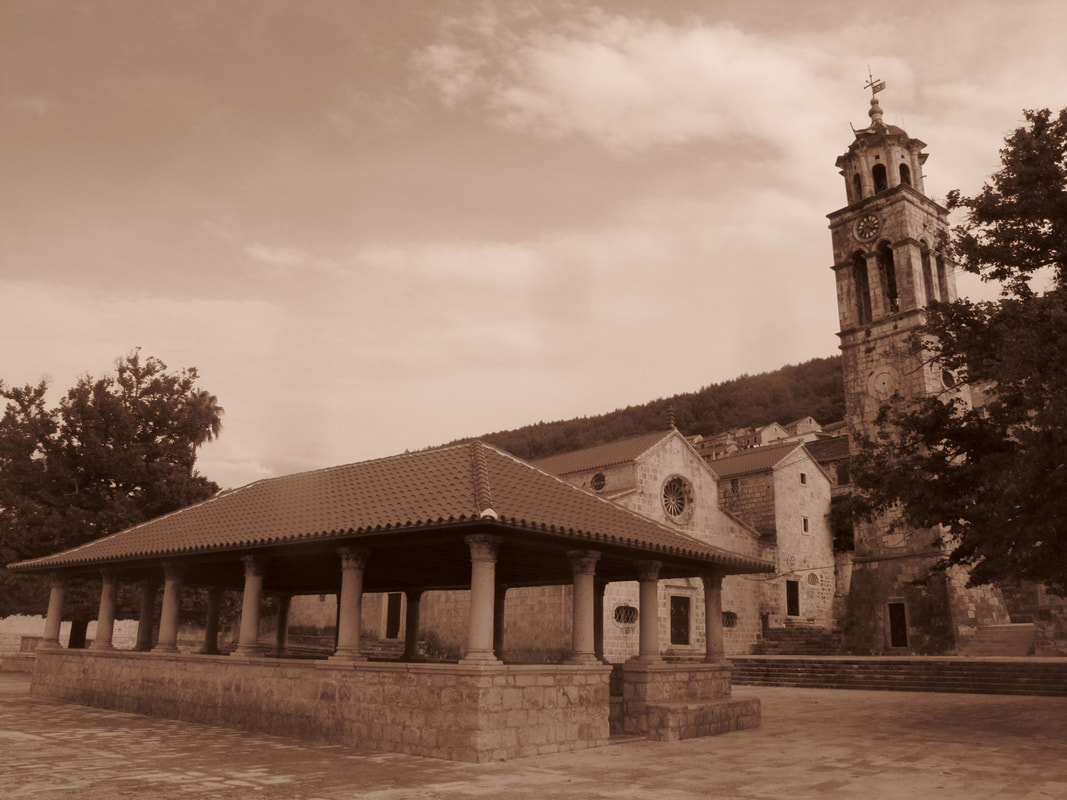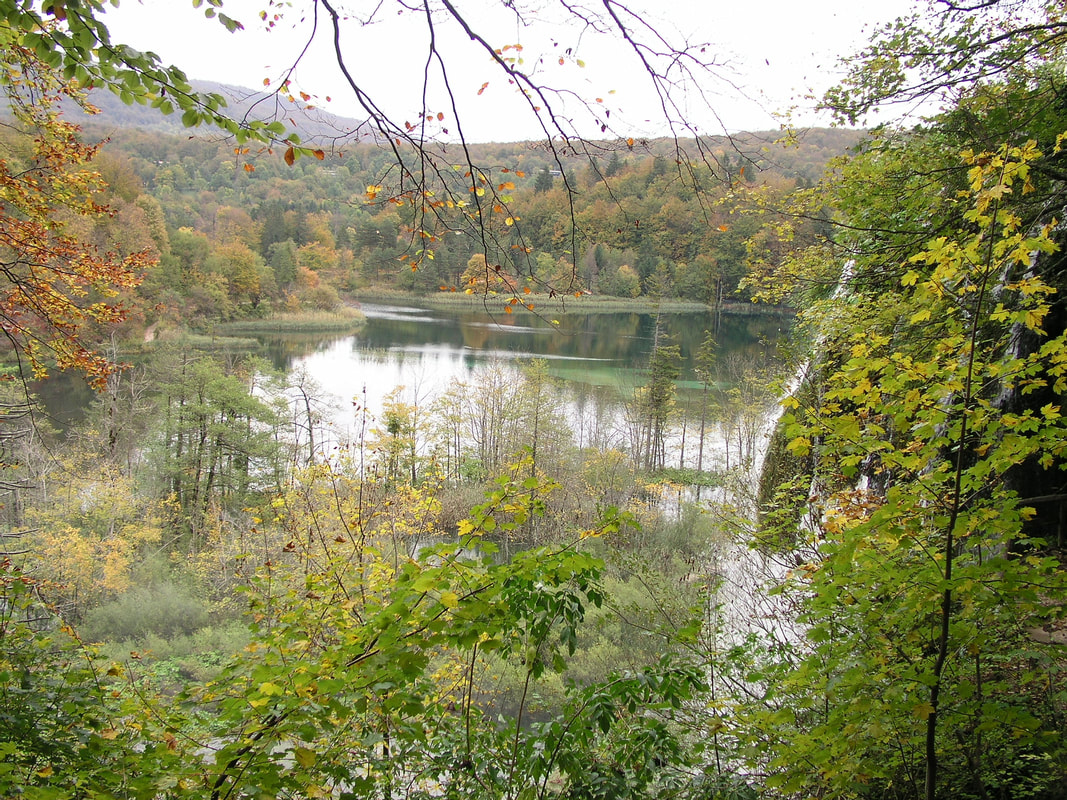Croatian grammar #011Declension of place names (countries and towns)
Mi smo u Vodicama. Oni su u Veloj Luci. Ja idem u Velu Luku.
Eh!?
I presume that we all know of London, Zagreb, Pula, Makarska, Vodice, Vela Luka, Imotski, and Slavonski Brod?
And we might say:
But, when we are in Croatia, we might hear:
The name of the city changes! Well, I guess that we can deal with that: all nouns change form in different sentences. Yep, declination.
And we might also hear:
And what about this one, referring to the village Novi Vinodolski:
I can’t begin to tell you how much such sentences sent my head into a spin! But I eventually saw the logic of it all – thanks once more to my teacher Mateja (www.speakcro.com). That doesn’t mean that I decline place names properly every time – just that I understand the logic.
The logic of declination of place names
Most importantly, we need to recognise whether the place name is a noun (eg, Pula), an adjective (eg, Makarska), or a two-word name that has an adjective and a noun (eg, Slavonski Brod). I have talked about this in two other blogs which you might have seen – one referring to country names (Country names – Noun or adjective?), and the other about the names of towns and cities (Names of towns: A grammatical nightmare). And of course, we need to know how nouns and adjectives are declined in general. If you want a reminder, go to the posts Declension of regular nouns, and Declension of adjectives (Not yet posted).
And now, it’s as simple as this: place names are declined just like any of the other nouns and adjectives that we use in general.
Let me try to demonstrate by some comparisons. Note the endings …….
Plaža and Jelsa (both are feminine, singular nouns in the nominative)
Accusative: They are going to the beach. Idu na plažu. They are going to Jelsa. Idu u Jelsu. Locative: We are at the beach. Mi smo na plaži. We are at Jelsa. Mi smo u Jelsi.
Ova djevojka je u Opatiji.
Easy! More, more …..
Muškarci and Vinkovci (Both are masculine, plural nouns in the nominative) Accusative: I see the men. Vidim muškarce. I see Vinkovci. Vidim Vinkovce. Dative We are going toward the men. Idemo prema muškarcima. We are going toward Vinkovci. Idemo prema Vinkovcima.
Ulice and Vodice (Both are feminine, plural nouns in the nominative)
Locative: There was a crowd on the streets. Bila je gužva na ulicama. There was a crowd in Vodice. Bila je gužva u Vodicama. You want some adjectives? You can have some adjectives ….
Teška and Makarska (Both are feminine, singular adjectives)
Locative: I am thinking about a difficult exercise. Mislim o teškoj vježbi. I am thinking about Makarska. Mislim o Makarskoj. Turistički and Imotski (Both are masculine singular adjectives) Genitive: This is the first page of the travel poster. Ovo je prva stranica turističkog prospekta. This is the main street of Imotski. Ovo je glavna ulica Imotskog.
Are you ready for a double-barrel name consisting of an adjective and a noun?
Zeleni stol and Stari Grad (Adjective + noun, singular masculine) Locative: The girl is on the green table. Djevojka je na zelenom stolu. The girl is in Stari Grad. Djevojka je u Starom Gradu. Crvena jabuka and Vela Luka (Adjective + noun, singular feminine) Accusative: I see the red apple. Vidim crvenu jabuku. I see Vela Luka. Vidim Velu Luku. Locative: A fly is on the red apple. Muha je na crvenoj jabuci. They are in Vela Luka Oni su u Veloj Luci.
Nitko nije bio u Veloj Luci kad sam bio tamo.
and finally …..
Velika polja and Plitvička Jezera (Adjective + noun, plural neuter) Locative: Horses are in the big fields. Konji su u velikim poljima. Fish are in Plitvička Jezera. Ribe su u Plitvičkim Jezerima.
Ovo je jezero. To jezero je jedno od Plitvičkih Jezera. Plitvička Jezera su između Zagreba i Splita. Išao sam na Plitvička Jezera. Ribe su u Plitvičkim Jezerima. Na brdu iza jezera je jedno veliko polje. Zelena polja su predivna.
Enough, enough, without any more commentary.
Well maybe not .... It is one thing to understand these declensions, and perhaps to be able to get them right. But picking up by ear place names (declined) when somebody else is speaking is another world altogether. I talk about this in another post: Picking up place names by ear. Challenge Ready to test yourself? If you wish, have a go at translating these sentences involving the names of towns and countries. Answers are below.
Answers
Getting around
You can browse or search this website in the following ways:
AHA! Learning Croatian with Bob
Correspondence: [email protected]
0 Comments
Leave a Reply. |


